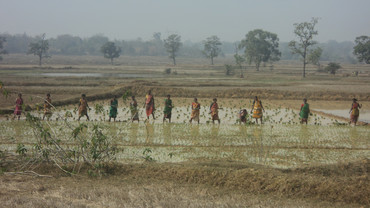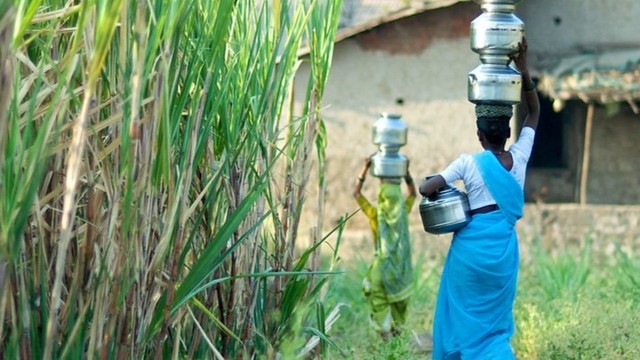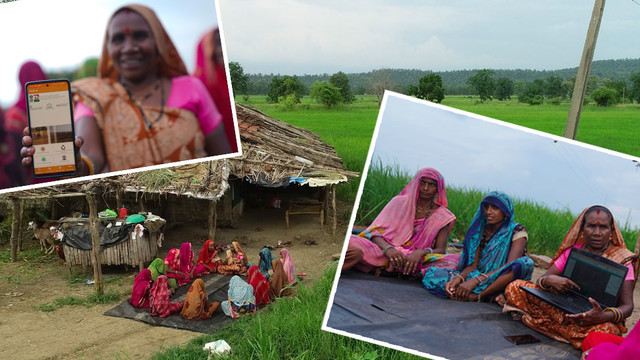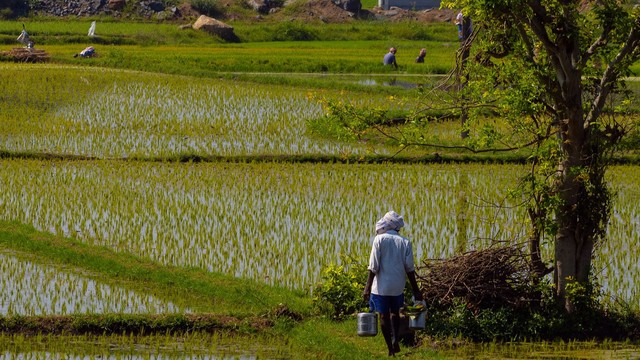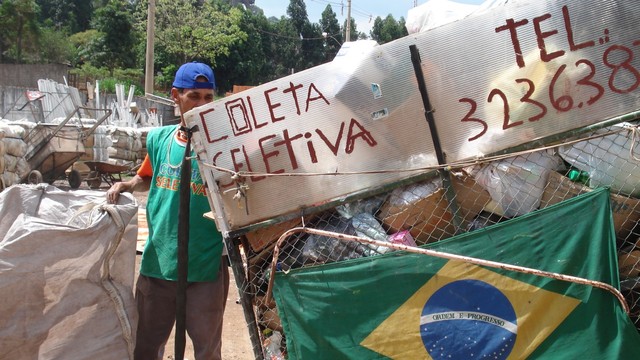Caste, unemployment and loss of property raise likelihood of migration in areas of India hit by climate change
Most marginalised people vulnerable to trafficking and forced labour as a result.
People considered to be from a marginalised lower-caste are more than three times as likely to migrate from certain parts of India due to the impacts of climate change according to new research from IIED.
In other areas, losing property and goods to climate impacts increases the likelihood of people migrating by almost seven times. With no social safety net to fall back on, many people report being trafficked or vulnerable to forced labour as a result.
Research for the report 'Social protection and informal job market reform for tackling climate migration nexus' was conducted in two areas in different states facing contrasting impacts from climate change. In Palamu, Jharkand state, where drought is the main consequence of climate change, being from a lower-caste increased someone’s likelihood of migrating by 338%.
Caste did not have a statistically significant bearing on migration from Kendrapara, Odisha state, where the community largely belongs to the general caste category and doesn’t face the same social discrimination.
In Kendrapara, losing property and goods to flooding or cyclones increased the likelihood of someone migrating from there by 687% while in Palamu, the likelihood increased by 172%.
The research also found that access to work through India’s national social protection scheme decreased people’s likelihood of migrating by 66% in Kendrapara and 59% in Palamu.
Ritu Bharadwaj, a principal researcher at IIED, said: “The most vulnerable people are being hit first and worst by the impacts of climate change. Those people already living on the margins of society are much more likely to be forced to leave their homes in the aftermath of extreme weather events and find ways to make a living elsewhere, and in turn that leaves them open to exploitation.”
Previous research by IIED showed that people migrating due to floods, drought and other extreme weather events were at high risk of being trafficked into forced labour, bonded labour, debt bondage, wage withholding or exploitative working conditions. People migrating to escape slow onset climate disasters like drought were two and a half times more likely to experience trafficking or modern slavery than those people fleeing rapid onset disasters like floods or cyclones.
Mangra Kharia, a 59-year-old, is from Gumla District, close to Palamu in Jharkhand state. He belongs to the Kharia tribe, an indigenous community that is extremely marginalised. He decided to take up a job fishing in Goa after agricultural work dried up in Gumla.
Kharia said: “When me and my friends asked for our weekly payments after 10 days of work, I was slapped by the supervisor for asking for the compensation and threatened with dire consequences. I did not know who to contact. I was desperate to get out, even if it meant losing my 10 days of wages.”
Eighteen-year-old Lakshmi is from West Singhbhum District in Jharkhand, where erratic rains have made agricultural work scarce. She travelled to an area just outside New Delhi where work as a domestic help is plentiful.
Lakshmi said: “I worked from morning, 6am, 'till midnight with no break in between and very little food to eat. I went to sleep hungry day after day. I started feeling weak in my body.”
She had no written contract and no agreement on remuneration, and her mobile phone SIM card was taken away by the contractor who found her work. Using someone else’s phone, she managed to call her brother who alerted police and local authorities.
Bharadwaj said: “There can be no doubt that the most vulnerable, marginalised people in society are already suffering exploitation and trafficking as a result of climate change. But our research also shows all is not lost – providing a social safety net and improving employment opportunities could go a long way to ensure people escaping crop failure, sea-level rise or lack of water are able to lead safe and dignified lives.”
For more information or to request an interview, contact Simon Cullen:
+44 7503 643332 or simon.cullen@iied.org
